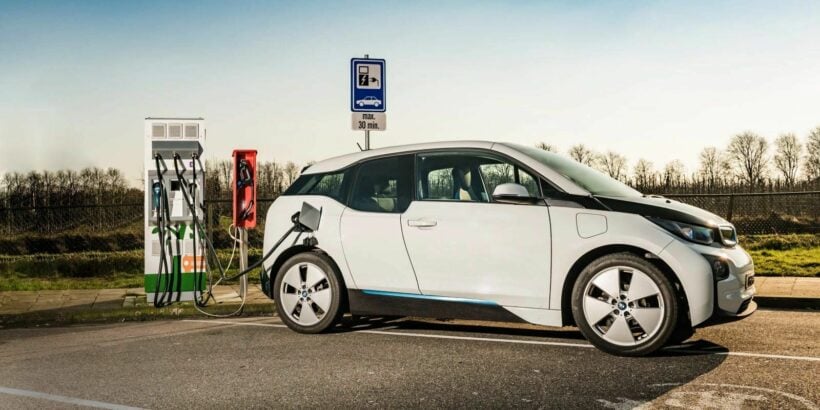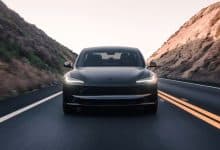Thailand charges towards an electric car future, with a few speed bumps

Thailand has the biggest automotive industry in Southeast Asia and the 12th largest in the world. Most of those coming out of Thai factories, well just about all really, are standard internal combustion engines with a few ‘hybrid’ models sprinkled in there as well. The hybrids include electric motors and charging systems which saves fuel and load on the petrol engines.
But there is a strong tilt to electric cars as a future for Thailand’s massive auto industry. There are currently 19 major auto manufacturers in Thailand, all trying to move towards a slice of the future EV pie. There’s also a handful of electric car start-ups working within the Kingdom.
The Thai Energy Ministry’s Energy Planning and Policy Office says that purchases of electric vehicles in Thailand will rise from just 9,000 back in 2018 to over 400,000 in 2028. They’ve peered further into the future too, predicting 1.2 million EVs in 2036 and 690 charging stations scattered around the country.
Just this week a major Thai petro-chemical company, Bangchak, announced that the company is planning to install EV charging stations at all its petrol stations under an MoU for clean energy business development signed with the Provincial Electricity Authority. That will be another 62 charging stations installed this year with other petrol companies and coffee company Amazon signalling they’re getting their electric charging vibe happening too.
For its part, the Thai government provides incentives in the form of low import tariffs for importers and tax exemptions for manufacturers, but few incentives for consumers at this stage. But, despite the incentives, the Electric Vehicle Association of Thailand says that Thailand’s EV take-up rate is too slow.
Three HEV models have been locally assembled since 2009: the Toyota Camry, Honda Accord and Nissan X-Trail. Mercedes-Benz BlueTEC hybrid engines have been assembled in Thailand since 2013 before upgrading to a PHEV platform in 2016. BMW began PHEV assembly in Thailand in 2016. Toyota assembles 7,000 HEVs a year in Thailand and makes 70,000 EV batteries.
But there is little doubt the popularity of locally built and imported EVs will rise over the next few years. There will be more choice, the cars will become more affordable, travel further on a charge, and there will be more convenient and numerous refuelling stations around the country.
There’s certainly now general consensus among international motorists that it’s time to move to eco-friendly alternatives as the best long-term solution to vehicle-produced air pollution from fossil fuels. Up to now the costs of the electric alternatives have been high, ownership seen as a ‘statement’ rather than as ‘just a car’, and the lack of refuelling stations making owning an electric vehicle more problematic.
It’s certainly not about performance anymore with many new electric cars now making their petrol cousins look like grandma’s Sunday drive in the old Volvo (with apologies to Volvo drivers of the past. But… really…).
But, so far, Thai motorists haven’t embraced EVs. Certainly many are waiting for more availability of infrastructure to support EV, such as recharging stations. The price is still higher than an equivalent petrol or diesel model and the selection has been limited. There’s also been a lot of new ‘hybrid’ models – part electric, part conventional engine – that are confusing the buyers who don’t yet have a clear understanding of what an EV is and what a hybrid is, how they work and the various versions offered by car-makers.
Whilst many of the hybrid versions are offered as part of a current model line-up, the full EVs are usually a stand-alone design.
There’s also the old perception that they don’t have any performance, don’t go far between charges, the batteries need replacing every few years and they will be difficult to resell. In all cases there have been huge technical and infrastructure advances making the claims mostly redundant.
A survey last year by Frost & Sullivan suggested that 37% of Asians are currently interested in owning an EV, with those in the Philippines, Thailand and Indonesia having the highest purchasing power and interest in upgrading. The reasons behind their motivation to purchase EVs included the environment, safety, convenience and financial readiness.
Over the next ten years Thailand is expected to have 690 recharging stations nationwide, that compares to around 25,000 petrol\gas stations around the Kingdom now.
With the Thai government slowly getting behind EVs, and the government and industry’s need to future-proof the car manufacturing business, there is a powerful future for electric cars in Thailand. The next 12 months will be a key period to stamp a “powerful” foundation on a revised car industry.
Latest Thailand News
Follow The Thaiger on Google News:


























